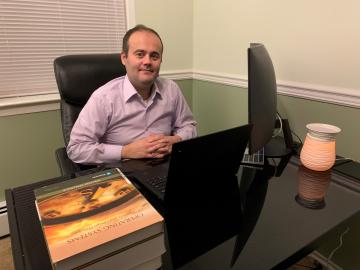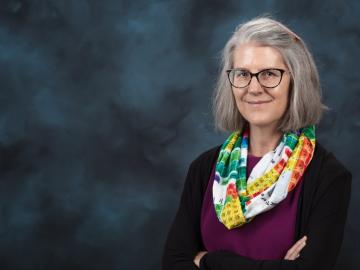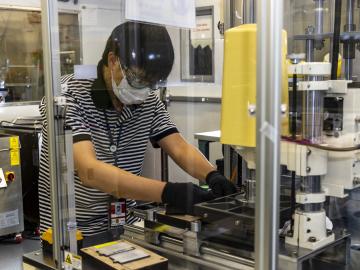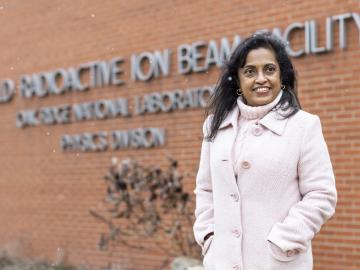
Filter News
Area of Research
News Type
News Topics
- (-) Clean Water (7)
- (-) Composites (3)
- (-) Cybersecurity (6)
- (-) Energy Storage (13)
- (-) Mathematics (5)
- (-) Physics (16)
- (-) Quantum Computing (1)
- 3-D Printing/Advanced Manufacturing (13)
- Advanced Reactors (2)
- Artificial Intelligence (9)
- Big Data (12)
- Bioenergy (23)
- Biology (27)
- Biomedical (13)
- Biotechnology (7)
- Buildings (10)
- Chemical Sciences (9)
- Computer Science (14)
- Coronavirus (6)
- Critical Materials (2)
- Environment (40)
- Exascale Computing (3)
- Frontier (3)
- Fusion (9)
- Grid (7)
- High-Performance Computing (11)
- Hydropower (2)
- Isotopes (13)
- ITER (1)
- Machine Learning (10)
- Materials (9)
- Materials Science (15)
- Mercury (4)
- Microscopy (11)
- Nanotechnology (6)
- National Security (17)
- Neutron Science (10)
- Nuclear Energy (16)
- Partnerships (2)
- Polymers (5)
- Quantum Science (5)
- Security (7)
- Simulation (8)
- Summit (2)
- Transportation (12)
Media Contacts

Mechanical engineer Marm Dixit’s work is all about getting electricity to flow efficiently from one end of a solid-state battery to the other. It’s a high-stakes problem

Though Nell Barber wasn’t sure what her future held after graduating with a bachelor’s degree in psychology, she now uses her interest in human behavior to design systems that leverage machine learning algorithms to identify faces in a crowd.

How an Alvin M. Weinberg Fellow is increasing security for critical infrastructure components

Spanning no less than three disciplines, Marie Kurz’s title — hydrogeochemist — already gives you a sense of the collaborative, interdisciplinary nature of her research at ORNL.

Burak Ozpineci started out at ORNL working on a novel project: introducing silicon carbide into power electronics for more efficient electric vehicles. Twenty years later, the car he drives contains those same components.

Having co-developed the power electronics behind ORNL’s compact, high-level wireless power technology for automobiles, Erdem Asa is looking to the skies to apply the same breakthrough to aviation.

Moving to landlocked Tennessee isn’t an obvious choice for most scientists with new doctorate degrees in coastal oceanography.

Deborah Frincke, one of the nation’s preeminent computer scientists and cybersecurity experts, serves as associate laboratory director of ORNL’s National Security Science Directorate. Credit: Carlos Jones/ORNL, U.S. Dept. of Energy

In his career focused on energy storage science, Jianlin Li has learned that discovering new ways to process and assemble batteries is just as important as the development of new materials.

Nuclear physicist Caroline Nesaraja of the Department of Energy’s Oak Ridge National Laboratory evaluates nuclear data vital to applied and basic sciences.


